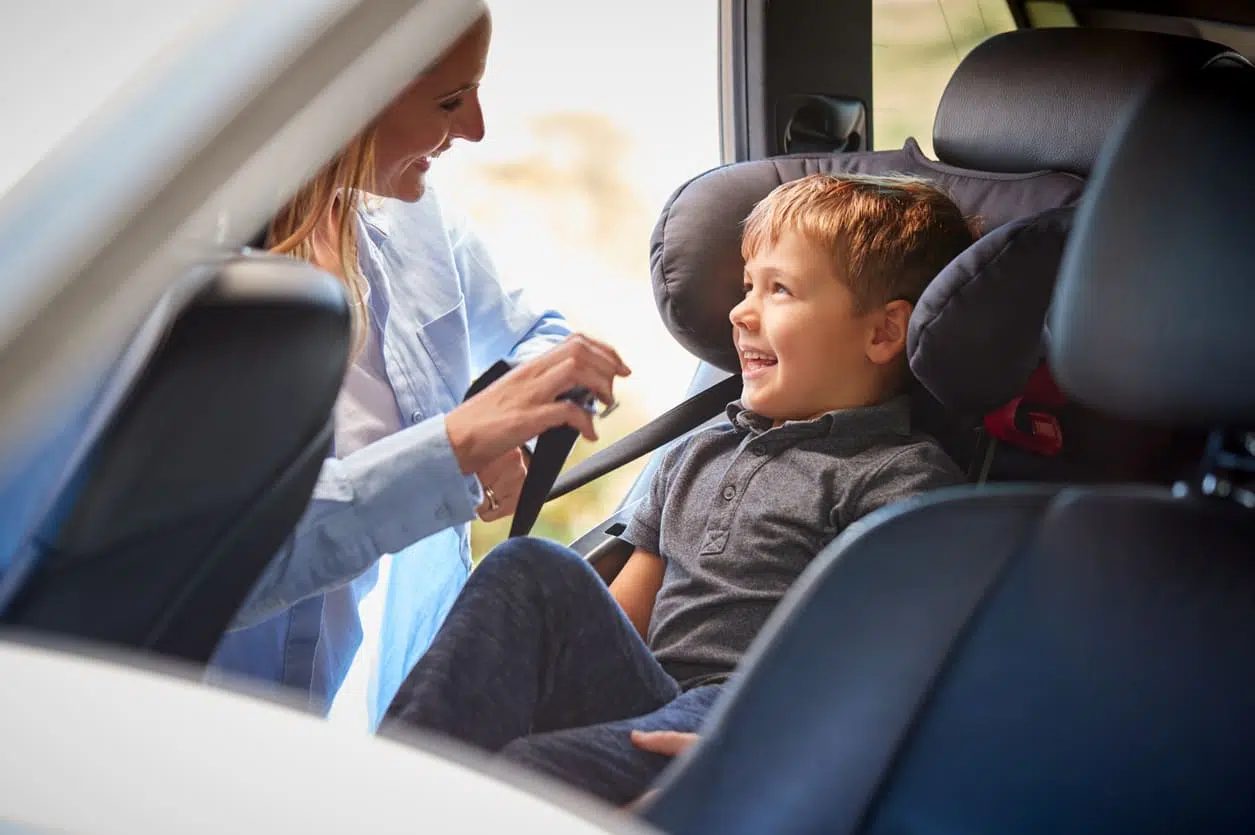Alejandro Figueroa | October 19, 2021 | Florida Law

Florida has strong car and booster seat laws to protect children during car accidents. The U.S. National Highway Transportation Safety Administration (NHTSA) found that over 40% of children killed in car crashes were wearing no restraints at the time of the crash.
Car seats and booster seats decrease the risk of serious injuries. The U.S. Centers for Disease Control report that car seats and booster seats reduce the risk of injury to children in car crashes by over 70%.
Here is some information about car and booster seat laws in Tampa, FL.
Car and Booster Seat Laws
Car and booster seat laws come from the state government. While the U.S. government has published guidelines about car and booster seat use, it has left discretion for legislation up to the states.
Like the federal recommendations, Florida’s car seat law breaks down requirements by age group:
Children Ages Zero to Three Years Old
Until children reach their fourth birthday, Florida requires them to ride in a car seat or built-in child seat. The car seat may be removable, but it must have:
- A seatback
- A harness
The seatback spreads the force from a collision across the child’s body rather than focusing it on the child’s neck, spine, or head. The harness keeps the child from flying around the inside of the vehicle or being ejected.
A harness provides a more effective restraint because a child is less likely to slip out of the harness than a shoulder or lap belt.
Florida’s statute does not specifically mention rear-facing seats. Instead, the law leaves the decision to use a rear-facing car seat to the parents. Likewise, the law does not tell parents when to switch to a front-facing car seat.
According to the NHTSA, you should keep your child in a rear-facing car seat for the first 12 months of their life. After that, the NHTSA recommends switching to a front-facing car seat only when the child outgrows the height and weight restrictions for the rear-facing car seat.
Children Ages Four or Five
From the child’s fourth birthday until their fifth birthday, Florida’s law requires you to restrain your child in a car seat, built-in child seat, or booster seat. In other words, on your child’s fourth birthday, you gain the option of placing your child in a booster seat.
A booster seat is different from a car seat because it does not provide a harness. Instead, the booster seat lifts the child high enough to use the car’s seat belt without the belt crossing the child’s neck. Some booster seats provide additional features, such as a seat back or a seat belt guide.
According to the NHTSA’s guidelines, you should keep your child in a front-facing car seat until the child exceeds the height and weight limits of the seat. Typically, this happens when the child’s weight exceeds 40 to 65 pounds, regardless of their age.
Children Ages Six to Seventeen
On your child’s sixth birthday, Florida no longer requires you to provide a car or booster seat for your child. However, Florida does require your child to wear a seatbelt until their eighteenth birthday.
Under NHTSA guidelines, your child should remain in a booster until they are tall enough to wear the seat belt safely. Generally, this means the child must be taller than four feet, nine inches. If your child is shorter than this on their sixth birthday, the safest option is to keep them in a booster seat until they grow.
Child Safety and Florida’s Car and Booster Seat Laws
The NHTSA guidelines overlap significantly with Florida law. But rather than relying solely on age to advance a child through the various restraint systems, the NHTSA uses height and weight. This provides a greater margin of safety than what is currently required under Florida law.
Contact Our Personal Injury Law Firm in Tampa, FL
If you’ve been injured in an accident in Tampa, FL, and need legal help, contact our Tampa personal injury lawyers at Catania & Catania Injury Lawyers to schedule a free consultation.
Catania & Catania Injury Lawyers
Bank of America Plaza
101 E Kennedy Blvd #2400
Tampa, FL 33602
(813) 222-8656
We also provide legal assistance throughout the Tampa Bay Area including Clearwater, St. Petersburg, Sarasota, and Bradenton.

